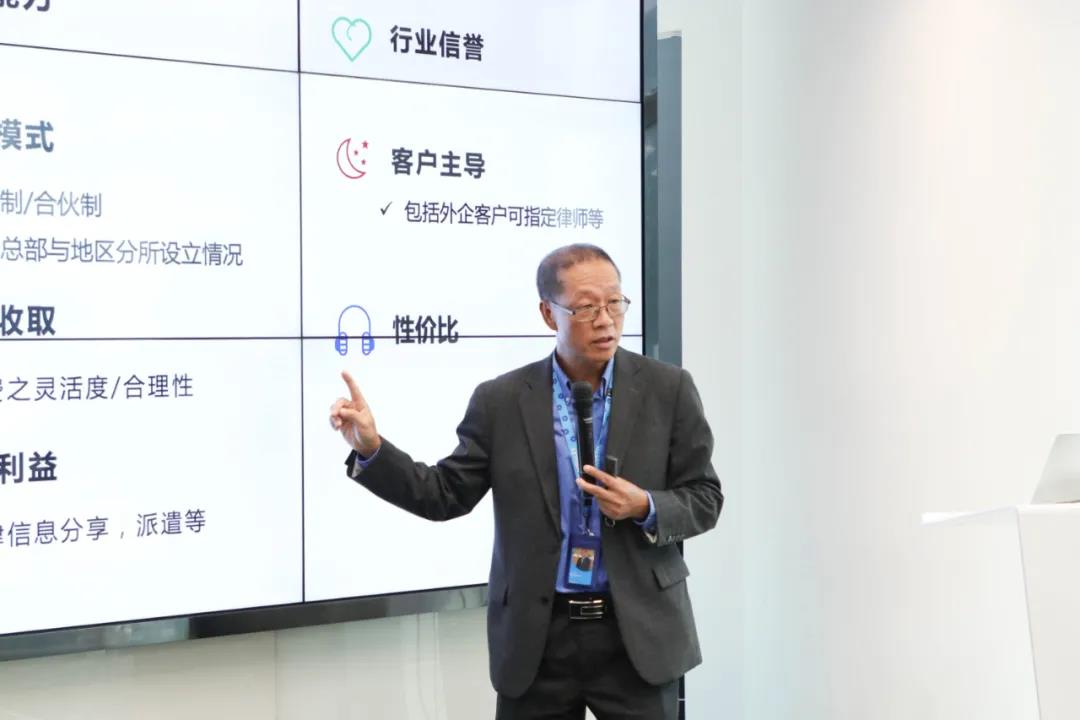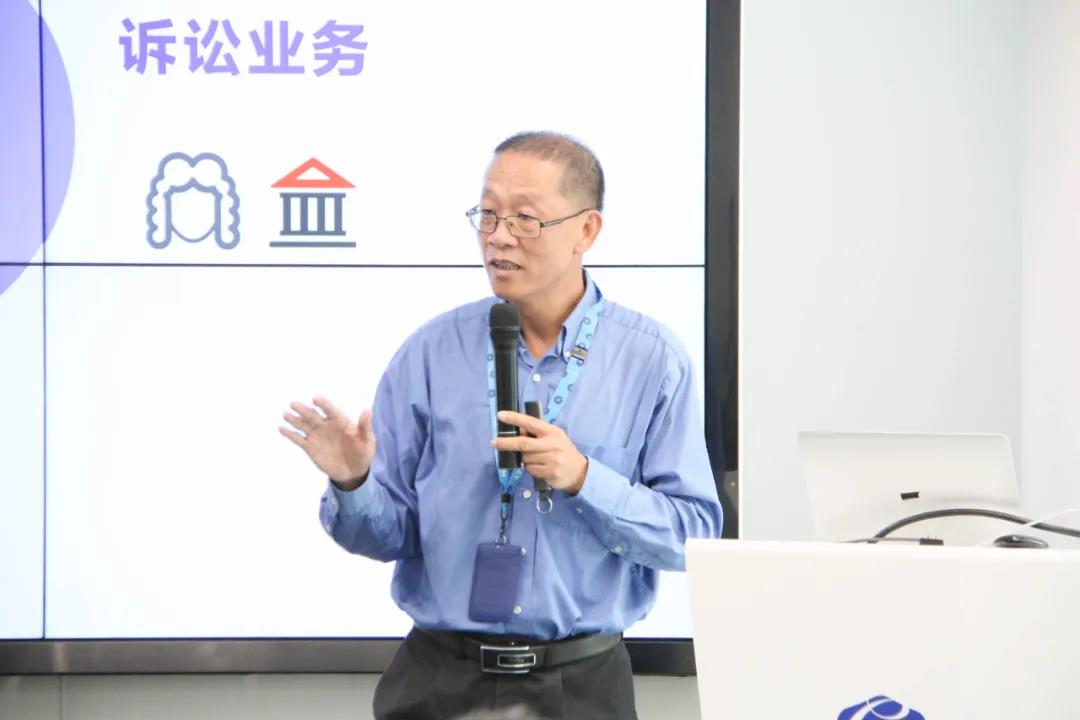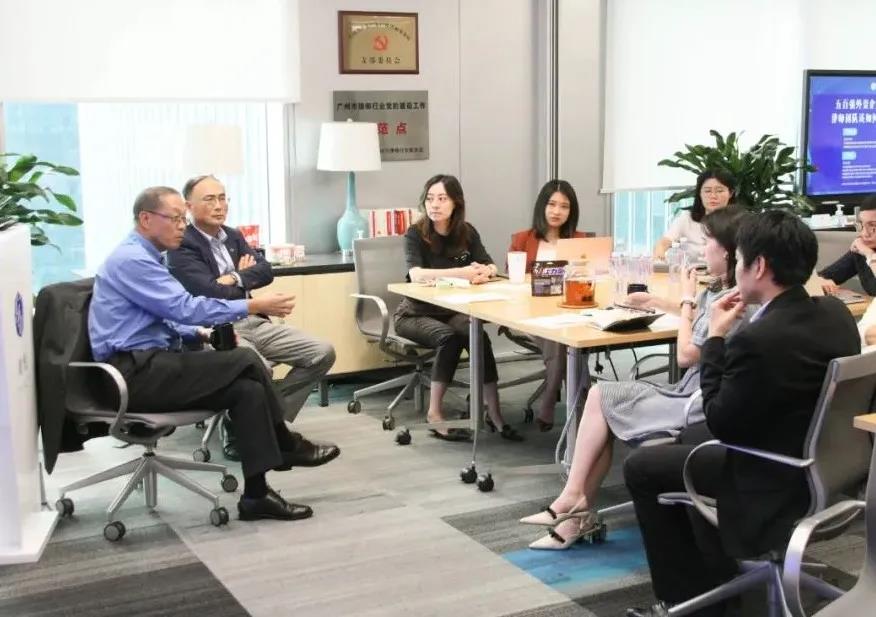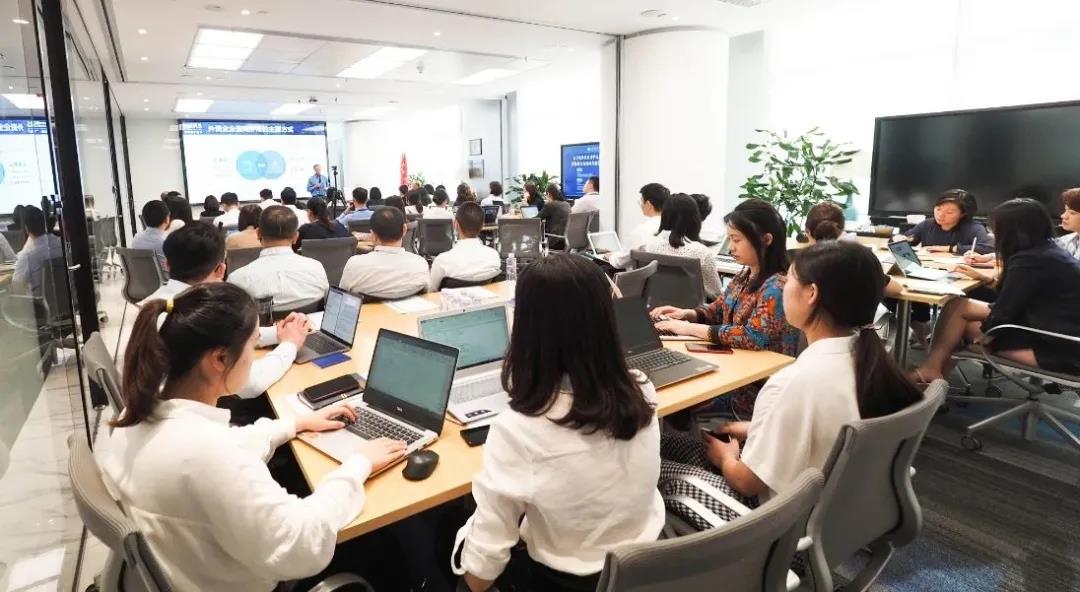
“GateWay” is a training program held by Wang Jing & GH Law Firm for our young lawyers, where we invite experts, scholars and senior lawyers both from inside and outside the Firm to share with and train our young lawyers in areas including Firm culture, values, market, professional knowledge, business etiquette and working skills so as to help our young lawyers grow fast.
On August 20th 2020, we had the pleasure of inviting Mr. Zhu Shaolong, Associate General Counsel of Mars Wrigley (China), to give a lecture for our fourth session of “Gateway”, on such topic as the legal service requirements of Top 500 Foreign-Invested Enterprises (FIEs) and how to provide legal services to them.
At the beginning of the lecture, Zhu firstly told us the story between himself and the FIEs that he has served, then introduced to us Mars, such as its corporate brand and value, the Five Principles, etc.
As one of the world’s top 500 multinational companies, Mars’ main business covers manufacture and sales of snacks (candy and chocolate), pet products, staple food and electronic products. The company has an annual revenue of more than USD46 billion, with nearly 115,000 employees worldwide working in 80 countries, and its products are sold in more than 100 countries. Specifically, the sales volume of candy and chocolate products and pet products is ranked first in the world, with a number of brands worth more than one billion US dollars, including dove, Mars, M&M's, Snickers, Uncle Ben's, etc.
I.How FIEs Choose and Retain External Lawyers
There are four main patterns as far as it concerns setting a legal department within an FIE, namely: (1) one subordinate to the global legal group, (2) one subordinate to the local (at country or region level) legal department, (3) one that mainly consists of the FIE’s internal legal counsels with assistance of some external lawyers, and (4) one comprising primarily external lawyers.
Mr. Zhu believes that the following fifteen elements are the main concerns in choosing external lawyers for providing legal services:
1.Comprehensive ability;
2.Operation type: (1) company / partnership; (2) location of headquarters, and whether regional offices are set up;
3.Charges: flexibility and rationality of charges;
4.Collateral benefits: sharing of legal information, ability to second external lawyers, etc.;
5.Reputation in legal industry;
6.Client service: whether clients could nominate specific lawyers;
7.Cost-effectiveness;
8.Experience: experience of serving FIEs;
9.Conflict of interest: extent of seriousness of conflict of interest;
10.Performance: quantity of cases handled;
11.Quality and size of lawyers of middle level;
12.Recommendation by other FIEs;
13.Conformity with principles abided by FIEs: such as the Five Principles of Mars;
14.Similarity of corporate values: similarity between the value of the law firm and that of the FIE, including corporate culture, principles, etc.
15.Attitude of service and ability of error correction.

During the speech, Mr. Wang Jing also shared his insight based on his rich experience. He believed that lawyers need to put themselves in clients’ position when providing services, and endeavor to understand clients’ needs so as to demonstrate professionalism in the course of daily communication and case handling.
II. How Legal Service Teams Provide Legal Services to FIEs
FIEs mainly seek services from an external legal service team in the form of legal opinion or litigation services. When providing legal services for them, lawyers should work in a transparent, direct and clear way. Regarding the issues that external lawyers shall pay attention to when providing services, Mr. Zhu points out that external lawyers should understand the value, culture and principles of FIEs, and ensure to fully understand their service requirements (in case of services beyond the scope of authorization, prior consent shall be obtained, and in case of excessiveness of working time, reminders are necessary).
When providing services, it is important to give suggestions based on clients’ needs. Lawyers should place themselves in the position of clients when considering the issues, and conduct operational drills for their legal opinions, so that their legal opinions could be both strategic and operable with specific steps to follow by clients. In addition, a good cooperative relationship is conducive for avoiding misunderstanding and conflict. At the same time, lawyers should comply with the compliance requirements of Overseas Anti-Corruption Act of the United States. It is strictly prohibited for any law firm to bribe employees in the legal department of FIEs. Otherwise, any breaching law firm might face a permanent delisting.

Conclusion
Young lawyers often grow relatively slow as regards their career development. They were usually timid and nervous at first, and then encountered career bottleneck, often accompanied by confusion in the course of growth. To achieve a rapid growth, Mr. Zhu gives the following three suggestions:
1. Think critically. When facing the authority and popular views, young lawyers should be brave to “challenge” them, and should make judgment and decision through their own analysis based on logic and evidence. They should cultivate critical thinking ability while maintaining curiosity and enthusiasm for knowledge.
2. Be modest. Arrogance and self-satisfaction obstruct one’s progress. Therefore, young lawyers should take time to communicate with peers and senior personnel in their work, and should always stay modest and willing to accept other’s comments, which could help them grow better.
3. Don’t hurry to make judgment or be locked between right and wrong. One should think twice before making a conclusion, and should not be locked between a right answer and what is supposed to be a wrong one, because there might be no answer to some issues.
At the end of the lecture when the Q&A part came, the participants actively raised many questions encountered by them during their work, to which Mr. Zhu answered one by one patiently.

Wang Jing & GH Law Firm always pursues the highest standard of professionalism and excellence in legal services in return for clients’ trust, no matter whether clients are Chinese funded enterprises, foreign-invested enterprises, or those with investment from Hong Kong, Macau, Taiwan.




